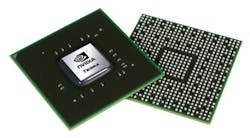Chipmakers Could Be Canary in Big Tech’s Coal Mine
Investors in Intel Corp. were unpleasantly surprised by the computer-chip company’s forecast for relatively flat revenue and profit margins for 2019. Fellow chipmaker Nvidia added to the dour news on Jan. 28 by cutting its expected revenue.
Well before these disappointments, however, the U.S. internet superpowers had already hinted at the chipmakers’ meek results. The chipmakers may, in turn, be sending warning signs about slipping growth for the tech powers.
Intel said last week that the biggest customers for its computer server chips — titans such as Amazon, Google, Microsoft Corp. and Alibaba — were “absorbing capacity” from their stockpiles of previous orders and would, therefore, most likely hold off on buying more chips for a few months.
Chips for servers, the computer workhorses stacked into data-center clusters to form the Internet’s backbone, are the most profitable business for Intel, and the tech giants are the most important buyers of Intel’s most important product. In Nvidia’s slashed forecast for revenue in the December quarter, the company also blamed worse-than-expected demand for chips used in computer data centers and for video-game machines.
Companies that supply raw materials for the technology giants to zip digital information around the world or handle online orders have communicated mixed messages. Intel and Nvidia are signaling that technology giants are at least pausing on investing in their growth. The question is whether the pullback is temporary, as Intel suggested, or an early indicator of growth challenges for the world’s tech superstars.
Even before the downbeat news from Intel and Nvidia, there have been hints that some of the tech giants have taken their foot off the gas a bit when it comes to big-ticket projects such as computer networks that require pallets of chips. The tech superpowers aren’t on a spending diet exactly, but quarterly capital expenditures show that Amazon.com Inc., Google parent company Alphabet Inc. and Facebook Inc. have slowed what had been a splurge on expensive physical assets.
Capital spending is not a perfect proxy for purchases of server chips. It’s a broad category that includes real estate acquisitions and purchases of package warehouses for Amazon in addition to binges on computer gear, chips and other digital essentials. The torrid pace of capital expenditures in 2017 and early 2018 could not have lasted forever. But it’s still worth asking why the tech giants chose this moment to pull back.
Intel suggested that their internet customers buy chips in binges, and they’re now in a typical calm period until they start writing big checks again.
Investors in both the tech giants and the chipmakers that sell to them should wonder, however, whether the pullback in capital spending is a response to cracks in big tech growth. Facebook and even Amazon have shown wobbles to varying degrees in what have been enviable rates of growth. The question is whether those companies believe those pangs are serious enough to apply the brakes to their spending, which ripples to companies such as Intel and Nvidia.
That nagging question further raises the stakes for the financial results starting this week for technology giants’ quarters ended in December.
From what Intel and Nvidia have said, it is likely that technology powers weren’t aggressive about capital spending at the end of 2018. It also bears listening for whether the tech powers say they’re pausing on capital investments or taking a long hiatus.
By Shira Ovide
